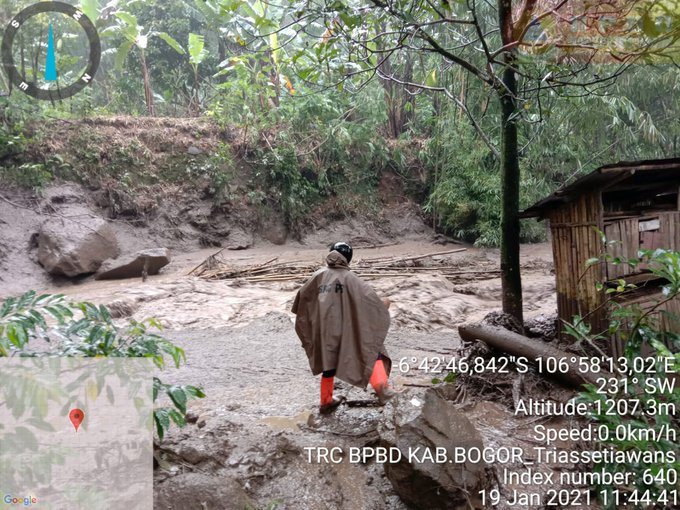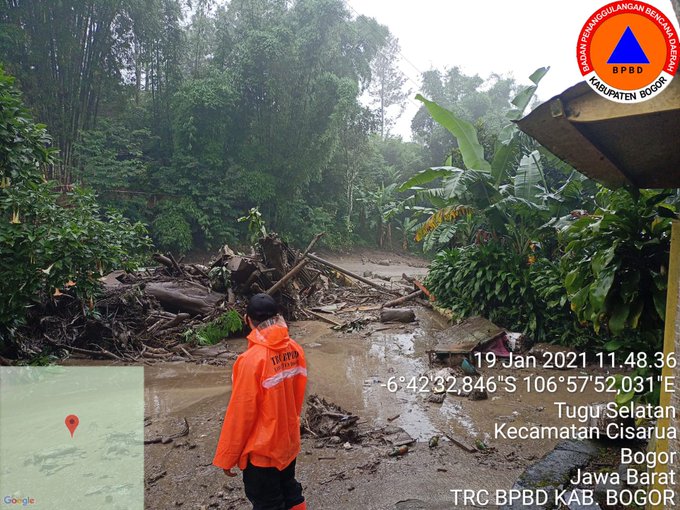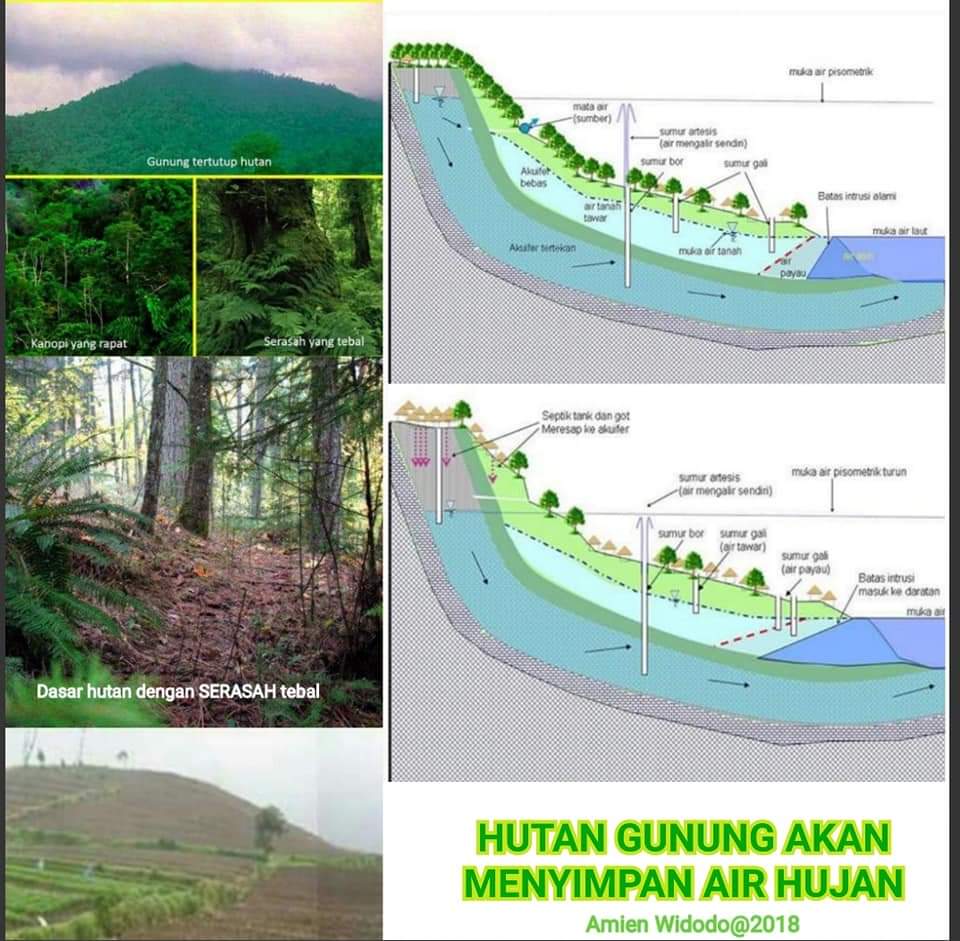ITS Research Expert Highlights Flash Food Disaster

Documentation of areas in the Bogor area hit by flash floods (Source: BPBD Bogor)
ITS Campus, ITS News – Earlier this year, Indonesia again faced various natural disasters, one of which was floods. After South Kalimantan, the Puncak area in Cisarua District, Bogor Regency was also hit by flash floods, last January 19. Seeing this phenomenon, a senior researcher from the Research Center for Disaster Mitigation and Climate Change (MKPI) Institut Teknologi Sepuluh Nopember (ITS) Dr. Ir Amien Widodo MSi highlighted this flood issue.
Amien also criticized the flash flood news that came from the Puncak area, Bogor. The reason is, said Amien, if the mountains are heavily forested, then the rainwater for the season will be absorbed into the soil in a quantity of more than 80 percent.
“The absorption water becomes the source of clean water, after going through a natural filter in the ground and discharged through the spring,” he explained. Apart from being able to be used as a source of drinking water, the spring that it touches has an important role in the process of supplying river water around the mountain.
The use of native forests in the mountains, according to Amien, greatly affects climate, water, and wind systems. The energy from falling rainwater will be able to withstand the forest canopy and enter through the litter until it seeps into the ground. This supply of water will provide nourishment to the ecosystem, both macroorganisms, and microorganisms. So, variations in biological resources can be realized there.
“These plants then maintain soil stability with their root system,” he said. Without the help of fiber roots that hold the soil structure, and without supporting roots that become haunted (nails) in the ground, a flood that may have been small can turn into a flash flood disaster.
Like the flood that hit Bogor some time ago, which caused 900 residents of Bogor to be evacuated was not just a flood of water, but a flood followed by mud and tree branches. Due to the absence of a root system that holds the soil, the soil on the slope is eroded.

Tugu Selatan area, Cisarua District, Bogor Regency after being hit by flash floods (Source: BPBD Bogor)
“Apart from the absorbed water, rainwater will flow on the surface,” he explained. If the water flows towards the river, while the soil is easily eroded, the river will experience silting. As a result, mud from the river bed will over time flow with water and other eroded layers.
Looking back, flash floods in Indonesia since 2002 have occurred almost every year and have caused many losses. From year to year, said the lecturer at the ITS Geophysical Engineering Department, people are increasing in number and encroaching on areas that should not be inhabited.
“The conversion of the original forest in the mountains, which was originally a forest, is now a tourist area with some hotels, settlements, and plantations,” he said giving an example. He mentioned this to represent several human actions that could make the mountain land under threat of protection and make it unstable.

Illustration of a mountain forest as protected forest area and water catchment area
Therefore, said Amien, the role of the government is needed as an effort to restore the function of the mountain peak area. From his perspective, the mountainous area has now changed its function in a massive, systemic, and structured manner. “I regret that the protected forest areas and water catchment areas are now shrinking,” he said.
He hopes that the government in disaster-prone areas, especially floods and landslides, can reinforce regulations regarding land use in areas that should be part of native forests. “As long as the top of the mountain is not forested, aka bare, get ready to say welcome to the floods in the future,” he said.
It is something that is not wise, according to him, to respond to disasters that may be detrimental by blaming nature. Amien revealed that there would be a lesson in every incident. If only by blaming nature without introspection of what mistakes have been done, it will only repeat the mistakes and continue to reap the pain. (qaf/ris/ITS Public Relations)
Related News
-
Facilitating Creativity of Students, ITS Information Systems Department Presents CCWS
ITS Department of Information Systems students conduct a discussion in one of the available spaces in the ITS Digital
February 01, 2021 17:02 -
ITS Explores Electrification Cooperation with PT Vale Indonesia
ITS Campus, ITS News — Following up on the Memorandum of Understanding (MoU) with PT Vale Indonesia, Institut Teknologi
February 01, 2021 17:02 -
ITS Reaches Top 7 BRIN Collaborators with 309 Scientific Publications
ITS Campus, ITS News — Institut Teknologi Sepuluh Nopember (ITS) continues demonstrating its commitment to strengthening collaboration in research
February 01, 2021 17:02 -
The Only One from Indonesia, ITS Student Becomes Erasmus+ Scholarship Awardee
ITS Campus, ITS News — Civitas academica of Institut Teknologi Sepuluh Nopember (ITS) has once again contributed to making
February 01, 2021 17:02
